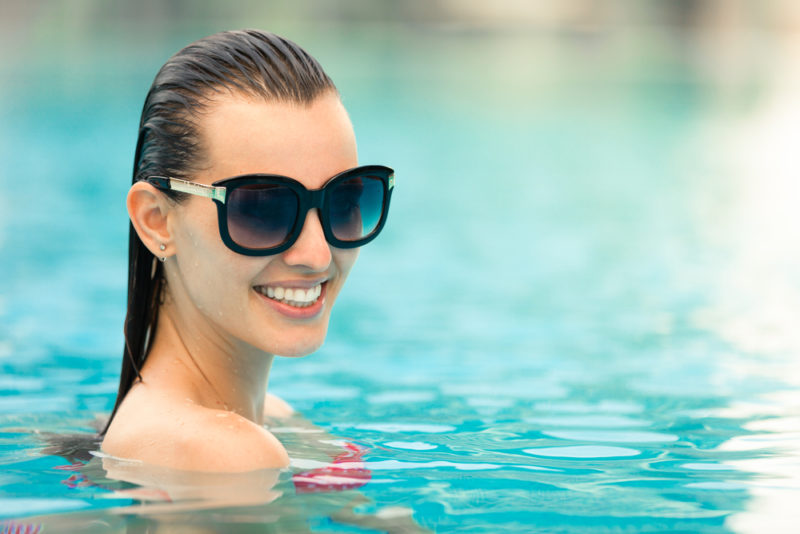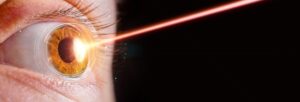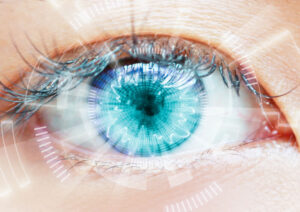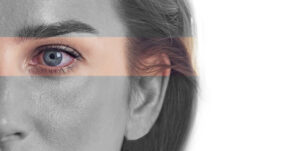
Many individuals apply sunscreen to protect their skin from exposure to the harmful rays that are emitted by the sun. However, not as many individuals take the same protective measures for their eyes against those same harmful rays. Unprotected exposure to the sun can cause very serious vision and eye complications. Wearing proper sunglasses is a simple, but extremely beneficial action that individuals can do to maintain healthy vision and eyes.
Blocking UVA and UVB
Only sunglasses that offer a high percentage of UV protection are beneficial. Sunglasses that do not protect against harmful UVA and UVB rays are just a fashion accessory and provide no health benefits to the wearer. UVA and UVB rays have been linked to cause cataracts, benign growths on the eye surface, skin cancers of the eyelid, and photokeratitis. Taking such a small step as wearing proper protecting sunglasses when out in the sunlight can prevent these serious eye and vision complications.
Cataracts are a condition that causes the lens to become cloudy, which results in blurry vision. Both UVA and UVB have been shown in studies to have some impact upon the formation and development of cataracts. Proper sunglasses should be rated to block out 99-100% of all UVA and UVB rays. The benign growths that can develop from unprotected exposure to UVB rays can be unappealing, cause corneal complications and impair vision. The skin of the eyelids can be very susceptible to skin cancer. Photokeratitis, or snow blindness in extreme cases, is the inflammation of the cornea can be caused by high short-term exposure to UVB rays. The main symptom of photokeratitis is temporary vision loss up to 48 hours.
Blue Light
Blue light that comes from the high-energy end of the visible light spectrum and is the type of light that is emitted from LED lights. Blue light has been linked to cause significant damage to retinal cells in the eyes that can lead to macular degeneration. Macular degeneration is the deterioration of the retina cells, which are responsible for relaying the images we see to the optic nerve, and is the leading cause of vision loss, even more than cataracts and glaucoma.
Seeing in the Dark
The last main vision consequence that can arise from not wearing proper or any sunglasses is the loss or delayed dark adaptation. Excessive time spent in bright light can hinder the eyes ability to adapt quickly to indoor or nighttime light. This can extremely hazardous when an individual has been driving in bright sunlight and has to adapt to driving in low light environments.
Best Type of Sunglasses
The best type of sunglasses to buy for the most protection is ones that are rated to block out 100% of UVA and UVB rays and UV 400 (which are the tiniest UV rays). The colors of lenses do not matter as much in protection but yellow and rose- colored lenses tend to distort colors and are not recommended for driving. Gray, green and brown-colored lenses reduce light intensity without distorting colors, which would be safer for driving. And if a significant amount of time is expected to be spent on the water, polarized lenses would be a good option because they filter the reflective glare off of the water. You can contact our specialists at our Eye Surgery Center in Atlanta, GA.
Contact Us
If you have more questions about LASIK procedures, get in touch with us.
Related Blogs

Who Should Not Have Laser Eye Surgery
Laser eye surgery, commonly known as LASIK (Laser-Assisted In Situ Keratomileusis), has revolutionized the world of vision correction. It’s a procedure that has enabled millions

LASIK eye surgery: What is LASIK and how does it work?
What Is LASIK? Experts categorize LASIK as a refractive eye surgery in which lasers are used to correct vision problems. LASIK corrects several refractive errors,

Everything You Need To Know About The Lipiflow Treatment
LipiFlow is often referred to as a ground-breaking technology that is able to treat dry eye issues caused by meibomian gland dysfunction, or MGD. Experts
